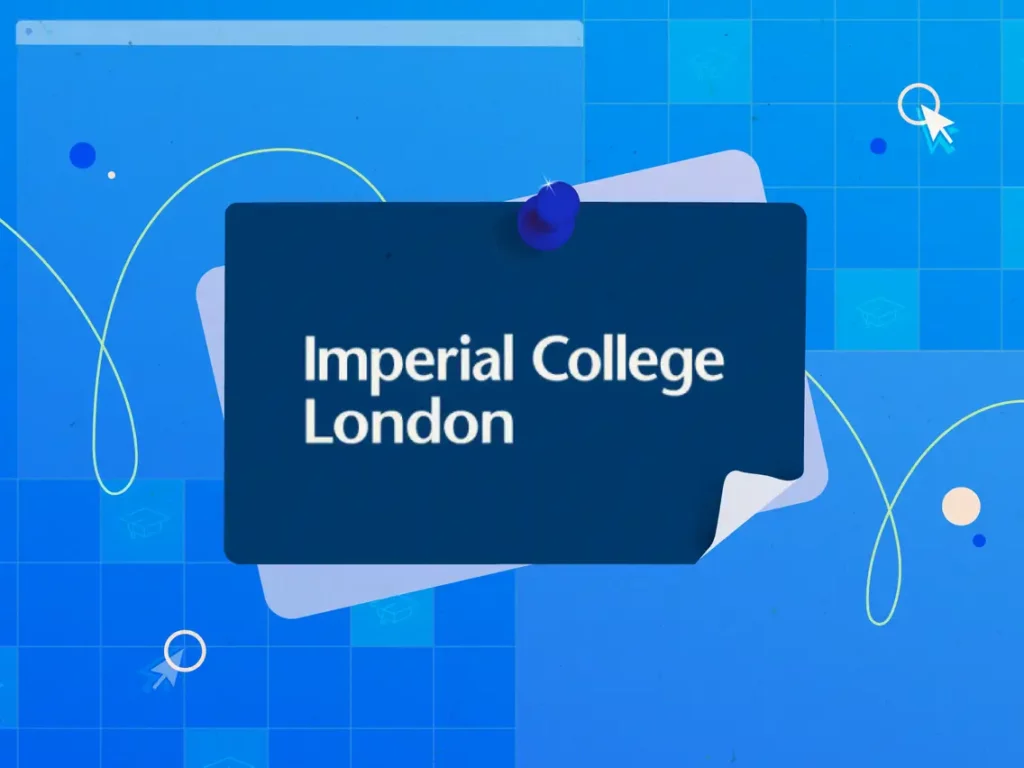Located in London, England, Imperial College London is a prominent public research institution. It began operations in 1907, is a member of the esteemed Russell Group, and consistently ranks among the best institutions in the world. Excellence in the fields of science, engineering, medicine, and business may be found at Imperial College London. Some of the best educators and researchers in the world call it home, and those who attend are some of the most intelligent and gifted people on the planet.
The institution places a priority on research, and its scholars are leading the way in game-changing discoveries across a variety of sectors. Some of the most significant scientific discoveries in recent decades have been attributed to Imperial College London, including the creation of penicillin, the discovery of the structure of DNA, and the holograph. Imperial College London is a significant hub for education. The school provides a wide variety of undergraduate and graduate programs, and its students receive a top-notch education. Graduates from Imperial College London are highly sought after by businesses all around the world, and they go on to significantly advance their disciplines.

What are the entry requirements for undergraduate courses?
Depending on the course you are applying for, Imperial College London has different entry criteria for undergraduate programs. However, the majority of courses demand a high level of proficiency in pertinent A-levels or comparable credentials.
- For a science course, the usual entry criteria are, for instance:
A-levels: A*AA in pertinent disciplines like biology, physics, chemistry, and mathematics
38 to 40 points for the IB diploma, including 7 in the higher-level subjects of mathematics, physics, chemistry, and biology
- For an engineering course, the normal entry criteria are:
A-levels: A*AA in pertinent areas including mathematics, physics, and additional mathematics
IB Diploma: 38 to 40 points, including 7 in Higher Level Mathematics, Physics, and Further Mathematics
- The typical prerequisites for a course in the humanities or social sciences are:
AAA in the pertinent A-level subjects
IB Diploma: 36–38 points, with 6 in subjects at the higher level
How do indian students apply for an undergraduate course?
Through the Universities and Colleges Admissions Service (UCAS) website, Indian students can apply for a bachelor’s degree at Imperial College London. For the following academic year, applications must be submitted by 15 January in most cases.
Indian students must also provide the following documents in addition to satisfying the basic entry requirements for undergraduate programs at Imperial College London:
- Certified duplicates of all
- Academic records and credentials
- An individual statement a pair of sources
- Proof of your ability to speak English, if necessary
The admissions office will contact you for an interview after you’ve submitted your application. You will have the chance to discuss your academic accomplishments and interests, as well as learn more about the course you are applying for, during the interview.
What is the interview process like?
- Invitation to interview: In case you have been chosen for an interview, the admissions office will get in touch with you. The date, time, and format of the interview will all be disclosed in the invitation.
- Preparation: When you receive an invitation to an interview, it is crucial to begin preparing. Researching the course you’re applying for, preparing common interview questions, and considering your motivations for enrolling in the course are all examples of this.
- Interview: The average interview lasts for 30 minutes. You will be questioned on a variety of topics, including your educational experience, why you are applying for the course, and your level of subject understanding. Additionally, you might be required to respond to a question or solve a problem pertaining to the course you are applying for.
- Decision: The admissions committee will decide on your application following the interview. Within a few weeks of the interview, you will be informed of the outcome.
What is the financial support available for Indian students?
There are a range of financial support options available to Indian students at Imperial College London, including:
- Scholarships: Indian students have access to a number of scholarships offered by Imperial College London. These awards are given on the basis of academic achievement or financial necessity.
- Bursaries: Students who are in need of financial assistance are given bursaries. They don’t have to be compensated.
- External resources: Many external organizations provide support to Indian students going overseas to study. These groups might provide loans, grants, or scholarships.
- Scholarships from Chevening: Outstanding Indian students studying a one-year master’s degree at Imperial College London are given Chevening Scholarships. The scholarships pay for all of the tuition fees as well as travel and living expenses.
- Commonwealth Awards: Outstanding Indian students studying a master’s or PhD at Imperial College London are given Commonwealth Scholarships. The scholarships pay for all of the tuition fees as well as travel and living expenses.
Placements of Imperial College London for Indian students
| Course | Placement Rate | Average Salary |
|---|---|---|
| Computer Science | 95% | £60,000 |
| Engineering | 93% | £55,000 |
| Mathematics | 90% | £45,000 |
| Physics | 88% | £40,000 |
| Chemistry | 85% | £35,000 |
| Life Sciences | 83% | £30,000 |
| Business | 80% | £25,000 |
| Medicine | 75% | £20,000 |
Frequently Asked Question
Yes, students have the option to pursue higher studies such as postgraduate degrees or research opportunities instead of participating in placements. The institute often supports students in their academic pursuits and career choices.
The role of the Placement Cell at Imperial College London is to provide students with support and guidance in finding and securing internships, placements, and graduate jobs.
Yes, international placements are available at Imperial College London. The College has a strong network of partner universities and businesses around the world, and it is committed to providing students with the opportunity to gain international experience.






